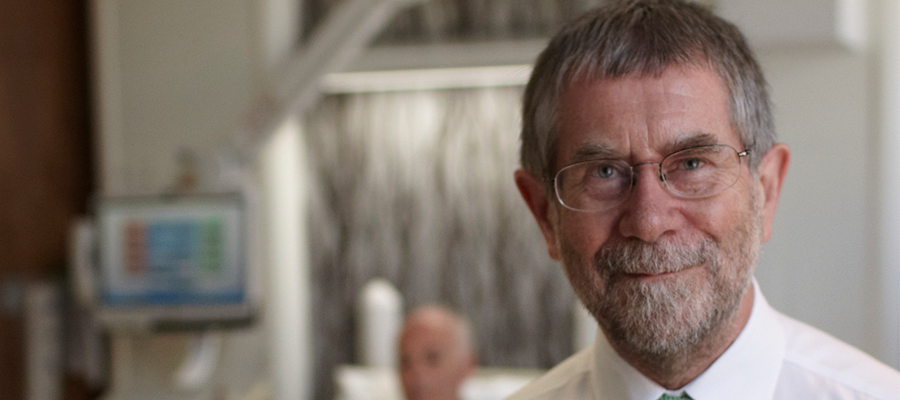Should first-line treatment for advanced or metastatic soft tissue sarcoma be doxorubicin alone or with ifosfamide?
25 Mar 2014
An EORTC study published in The Lancet Oncology does not support administration of intensified doxorubicin and ifosfamide for palliation of advanced soft tissue sarcoma, unless the objective is to shrink the tumor.
Dr. Ian Judson of the Royal Marsden Hospital in London and coordinator of this study says, “Our clinical trial was designed to compare combination treatment with doxorubicin and ifosfamide to treatment with doxorubicin alone, and our results show that the combination chemotherapy did not improve overall survival. So, if the goal of treatment is to control the disease, then administering doxorubicin alone is appropriate. On the other hand, if the goal is to shrink the tumor before another intervention or to relieve symptoms, then combination treatment is justifiable. The observed lack of improvement in overall survival points to the need for better treatments for patients with this disease.”
For some thirty years, patients with soft tissue sarcomas have been treated with doxorubicin and ifosfamide, but few studies have directly assessed whether doxorubicin should be administered alone or in combination with ifosfamide. EORTC trial 62012 assessed whether the addition of ifosfamide to doxorubicin improves survival of patients with advanced soft-tissue sarcoma compared with doxorubicin alone.
Between April 2003 and May 2010, EORTC trial 62012 randomized 455 patients aged 18 to 60 years with unresectable locally advanced or metastatic high-grade soft-tissue sarcoma to receive either doxorubicin alone (228 patients) or intensified doxorubicin plus ifosfamide (227 patients, combination group) as first-line treatment. At a median follow-up of 56 months in the doxorubicin alone group and 59 months in the combination group, no significant difference was observed in median overall survival (12.8 months [95·5% CI 10·5 – 14·3] in the doxorubicin alone group and 14.3 months [12.5 – 16.5] in the combination group; hazard ratio [HR] 0.83 [95.5% CI 0.67 – 1.03]; stratified logrank test p = 0.076). Median progression-free survival was significantly higher in the combination group (7.4 months [95% CI 6.6 – 8.3]) than for the doxorubicin alone group (4.6 months [2.9 – 5·6]; HR 0.74 [95% CI 0.60 – 0.90], stratified log-rank test p = 0.003). More patients in the doxorubicin and ifosfamide group than in the doxorubicin alone group had an overall response (26% versus 14%; p < 0.0006).
The most common grade 3 and 4 toxic effects were all more common in the combination than in the doxorubicin alone group: leucopenia (43% versus 18%), neutropenia (42% versus 37%), febrile neutropenia (46% versus 13%), anemia (35% versus 5%), and thrombocytopenia (33% versus <1%).
The intergroup phase III randomized controlled EORTC 62012 was conducted at 38 hospitals in ten countries: Belgium, Canada, Denmark, France, Germany, Slovakia, Spain, Switzerland, The Netherlands, and the United Kingdom. EORTC trial 62012 was supported by Cancer Research UK, EORTC Charitable Trust, United Kingdom National Health Service, Canadian Cancer Society Research Institute, and an Educational Grant from Amgen.
For more information please contact: www.eortc.org/contact
John Bean, PhD
EORTC, Medical Science Writer
Related News
EORTC: Advancing research and treatment for rare cancers
29 Feb 2024
EORTC Fellowship Programme: celebrating more than 20 years of impactful collaboration
22 Feb 2024
Appointment of Malte Peters as EORTC Strategic Alliance Officer
9 Feb 2024
Unique series of workshops in partnership with the European Medicines Agency (EMA)
7 Feb 2024
EORTC launches a prominent clinical trial in older patients with locally advanced (LA) HNSCC (Head and Neck Squamous Cell Carcinoma)
14 Dec 2023
Seven IMMUcan abstracts selected for ESMO Immuno-Oncology Congress 2023
6 Dec 2023
EORTC Quality of Life measures integrated in CDISC
20 Nov 2023
EORTC and Immunocore are collaborating to launch the ATOM clinical trial of tebentafusp in Adjuvant Uveal Melanoma
7 Nov 2023
Treatment with decitabine resulted in a similar survival and fewer adverse events compared with conventional chemotherapy in older fit patients with acute myeloid leukaemia
31 Oct 2023
New results and forthcoming EORTC trials in rare cancers, lung, head and neck, and breast carcinomas presented at ESMO 2023
20 Oct 2023


